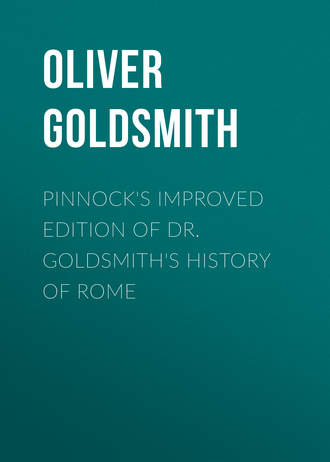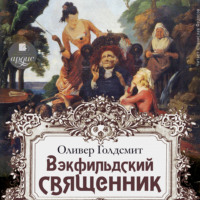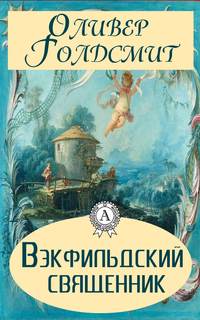 полная версия
полная версияPinnock's improved edition of Dr. Goldsmith's History of Rome
8. The power and prerogatives of the kings at Rome, were similar to those of the Grecian sovereigns in the heroic ages. The monarch was general of the army, a high priest,32 and first magistrate of the realm; he administered justice in person every ninth day, but an appeal lay from his sentence, in criminal cases, to the general assemblies of the people. The pontiffs and augurs, however, were in some measure independent of the sovereign, and assumed the uncontrolled direction of the religion of the state.
9. The entire constitution was remodelled by Ser'vius Tul'lius, and a more liberal form of government introduced. His first and greatest achievement was the formation of the plebeians into an organized order of the state, invested with political rights. He divided them into four cities and twenty-six rustic tribes, and thus made the number of tribes the same as that of the curiæ. This was strictly a geographical division, analagous to our parishes, and had no connection with families, like that of the Jewish tribes.
10. Still more remarkable was the institution of the census, and the distribution of the people into classes and centuries proportionate to their wealth. The census was a periodical valuation of all the property possessed by the citizens, and an enumeration of all the subjects of the state: there were five classes, ranged according to the estimated value of their possessions, and the taxes they consequently paid. The first class contained eighty centuries out of the hundred and seventy; the sixth class, in which those were included who were too poor to be taxed, counted but for one. We shall, hereafter have occasion to see that this arrangement was also used for military purposes; it is only necessary to say here, that the sixth class were deprived of the use of arms, and exempt from serving in war.
11. The people voted in the comitia centuriata by centuries; that is, the vote of each century was taken separately and counted only as one. By this arrangement a just influence was secured to property; and the clients of the patricians in the sixth class prevented from out-numbering the free citizens.
12. Ser'vius Tul'lius undoubtedly intended that the comitia centuriata should form the third estate of the realm, and during his reign they probably held that rank; but when, by an aristocratic insurrection he was slain in the senate-house, the power conceded to the people was again usurped by the patricians, and the comitio centuriata did not recover the right33 of legislation before the laws34 of the twelve tables were established.
13. The law which made the debtor a slave to his creditor was repealed by Ser'vius, and re-enacted by his successor; the patricians preserved this abominable custom during several ages, and did not resign it until the state had been brought to the very brink of ruin.
14. During the reign of Ser'vius, Rome was placed at the head of the Latin confederacy, and acknowledged to be the metropolitan city. It was deprived of this supremacy after the war with Porsen'na, but soon recovered its former greatness.
15. The equestrian rank was an order in the Roman state from the very beginning. It was at first confined to the nobility, and none but the patricians had the privilege of serving on horseback. But in the later ages, it became a political dignity, and persons were raised to the equestrian rank by the amount of their possessions.
16. The next great change took place after the expulsion of the kings; annual magistrates, called consuls, were elected in the comitia centuriata, but none but patricians could hold this office. 17. The liberties of the people were soon after extended and secured by certain laws, traditionally attributed to Vale'rius Public'ola, of which the most important was that which allowed35 an appeal to a general assembly of the people from the sentence of a magistrate. 18. To deprive the plebeians of this privilege was the darling object of the patricians, and it was for this purpose alone that they instituted the dictatorship. From the sentence of this magistrate there was no appeal to the tribes or centuries, but the patricians kept their own privilege of being tried before the tribunal of the curiæ. 19. The power of the state was now usurped by a factious oligarchy, whose oppressions were more grievous than those of the worst tyrant; they at last became so intolerable, that the commonalty had recourse to arms, and fortified that part of the city which was exclusively inhabited by the plebeians, while others formed a camp on the Sacred Mount at some distance from Rome. A tumult of this kind was called a secession; it threatened to terminate in a civil war, which would have been both long and doubtful; for the patricians and their clients were probably as numerous as the people. A reconciliation was effected, and the plebeians placed under the protection of magistrates chosen from their own body, called tribunes of the people.
20. The plebeians, having now authorised leaders, began to struggle for an equalization of rights, and the patricians resisted them with the most determined energy. In this protracted contest the popular cause prevailed, though the patricians made use of the most violent means to secure their usurped powers. The first triumph obtained by the people was the right to summon patricians before the comitia tributa, or assemblies of people in tribes; soon after they obtained the privilege of electing their tribunes at these comitia, instead of the centuria'ta; and finally, after a fierce opposition, the patricians were forced to consent that the state should be governed by a written code.
21. The laws of the twelve tables did not alter the legal relations between the citizens; the struggle was renewed with greater violence than ever after the expulsion of the decem'viri, but finally terminated in the complete triumph of the people. The Roman constitution became essentially democratical; the offices of the state were open to all the citizens; and although the difference between the patrician and plebeian families still subsisted, they soon ceased of themselves to be political parties. From the time that equal rights were granted to all the citizens, Rome advanced rapidly in wealth and power; the subjugation of Italy was effected within the succeeding century, and that was soon followed by foreign conquests.
22. In the early part of the struggle between the patricians and plebeians, the magistracy, named the censorship, was instituted. The censors were designed at first merely to preside over the taking of the census, but they afterwards obtained the power of punishing, by a deprivation of civil rights, those who were guilty of any flagrant immorality. The patricians retained exclusive possession of the censorship, long after the consulship had been opened to the plebeians.
23. The senate,36 which had been originally a patrician council, was gradually opened to the plebeians; when the free constitution was perfected, every person possessing a competent fortune that had held a superior magistracy, was enrolled as a senator at the census immediately succeeding the termination of his office.
Questions for Examination.
1. What is the most probable account given of the origin of the distinction between the patricians and the plebeians at Rome?
2. How did Romulus subdivide the Roman tribes?
3. By what regulations were the gentes governed?
4. Who were the chiefs of the gentes?
5. What was the condition of the clients?
6. By whom were alterations made in the number and constitution of the senate?
7. What assembly was peculiar to the patricians?
8. What were the powers of the Roman kings?
9. What great change was made in the Roman constitution by Servius Tullius?
10. For what purpose was the census instituted?
11. How were votes taken in the comitia centuriata?
12. Were the designs of Servius frustrated?
13. What was the Roman law respecting debtors?
14. When did the Roman power decline?
15. What changes were made in the constitution of the equestrian rank?
16. What change was made after the abolition of royalty?
17. How were the liberties of the people secured?
18. Why was the office of dictator appointed?
19. How did the plebeians obtain the protection of magistrates chosen from their own order?
20. What additional triumphs were obtained by the plebeians?
21. What was the consequence of the establishment of freedom?
22. For what purpose was the censorship instituted?
23. What change took place in the constitution of the senate?
CHAPTER V.
THE ROMAN TENURE OF LAND – COLONIAL GOVERNMENT
Each rules his race, his neighbour not his care,Heedless of others, to his own severe. —Homer.[As this chapter is principally designed for advanced students, it has not been thought necessary to add questions for examination.
The contests respecting agrarian laws occupy so large a space in Roman history, and are so liable to be misunderstood, that it is necessary to explain their origin at some length. According to an almost universal custom, the right of conquest was supposed to involve the property of the land. Thus the Normans who assisted William I. were supposed to have obtained a right to the possessions of the Saxons; and in a later age, the Irish princes, whose estates were not confirmed by a direct grant from the English crown, were exposed to forfeiture when legally summoned to prove their titles. The extensive acquisitions made by the Romans, were either formed into extensive national domains, or divided into small lots among the poorer classes. The usufruct of the domains was monopolized by the patricians who rented them from the state; the smaller lots were assigned to the plebeians, subject to a tax called tribute, but not to rent. An agrarian law was a proposal to make an assignment of portions of the public lands to the people, and to limit the quantity of national land that could be farmed by any particular patrician.37 Such a law may have been frequently impolitic, because it may have disturbed ancient possessions, but it could never have been unjust; for the property of the land was absolutely fixed in the state. The lands held by the patricians, being divided into extensive tracts, were principally used for pasturage; the small lots assigned to the plebeians were, of necessity, devoted to agriculture. Hence arose the first great cause of hostility between the two orders; the patricians were naturally eager to extend their possessions in the public domains, which enabled them to provide for their numerous clients, and in remote districts they frequently wrested the estates from the free proprietors in their neighbourhood; the plebeians, on the other hand, deemed that they had the best right to the land purchased by their blood, and saw with just indignation, the fruits of victory monopolized by a single order in the state. The tribute paid by the plebeians increased this hardship, for it was a land-tax levied on estates, and consequently fell most heavily on the smaller proprietors; indeed, in many cases, the possessors of the national domains paid nothing.
From all this it is evident that an agrarian law only removed tenants who held from the state at will, and did not in any case interfere with the sacred right of property; but it is also plain that such a change must have been frequently inconvenient to the individual in possession. It also appears, that had not agrarian laws been introduced, the great body of the plebeians would have become the clients of the patricians, and the form of government would have been a complete oligarchy.
The chief means to which the Romans, even from the earliest ages, had recourse for securing their conquests, and at the same time relieving the poorer classes of citizens, was the establishment of colonies in the conquered states. The new citizens formed a kind of garrison, and were held together by a constitution formed on the model of the parent state. From what has been said above, it is evident that a law for sending out a colony was virtually an agrarian law, since lands were invariably assigned to those who were thus induced to abandon their homes.
The relations between Rome and the subject cities in Italy were very various. Some, called municipia, were placed in full possession of the rights of Roman citizens, but could not in all cases vote in the comitia. The privileges of the colonies were more restricted, for they were absolutely excluded from the Roman comitia and magistracies. The federative38 states enjoyed their own constitutions, but were bound to supply the Romans with tribute and auxiliary forces. Finally, the subject states were deprived of their internal constitutions, and were governed by annual prefects chosen in Rome.
Before discussing the subject of the Roman constitution, we must observe that it was, like our own, gradually formed by practice; there was no single written code like those of Athens and Sparta, but changes were made whenever they were required by circumstances; before the plebeians obtained an equality of civil rights, the state neither commanded respect abroad, nor enjoyed tranquillity at home. The patricians sacrificed their own real advantages, as well as the interests of their country, to maintain an ascendancy as injurious to themselves, as it was unjust to the other citizens. But no sooner had the agrarian laws established a more equitable distribution of property, and other popular laws opened the magistracy to merit without distinction of rank, than the city rose to empire with unexampled rapidity.
CHAPTER VI.
THE ROMAN RELIGION
First to the gods 'tis fitting to prepareThe due libation, and the solemn prayer;For all mankind alike require their grace,All born to want; a miserable race. —Homer.1. We have shown that the Romans were, most probably, a people compounded of the Latins, the Sabines, and the Tuscans; and that the first and last of these component parts were themselves formed from Pelasgic and native tribes. The original deities39 worshipped by the Romans were derived from the joint traditions of all these tribes; but the religious institutions and ceremonies were almost wholly borrowed from the Tuscans. Unlike the Grecian mythology, with which, in later ages, it was united, the Roman system of religion had all the gloom and mystery of the eastern superstitions; their gods were objects of fear rather than love, and were worshipped more to avert the consequences of their anger than to conciliate their favour. A consequence of this system was, the institution of human sacrifices, which were not quite disused in Rome until a late period of the republic.
2. The religious institutions of the Romans form an essential part of their civil government; every public act, whether of legislation or election, was connected with certain determined forms, and thus received the sanction of a higher power. Every public assembly was opened by the magistrate and augurs taking the auspices, or signs by which they believed that the will of the gods could be determined; and if any unfavourable omen was discovered, either then or at any subsequent time, the assembly was at once dismissed. 3. The right of taking auspices was long the peculiar privilege of the patricians, and frequently afforded them pretexts for evading the demands of the plebeians; when a popular law was to be proposed, it was easy to discover some unfavourable omen which prohibited discussion; when it was evident that the centuries were about to annul some patrician privilege, the augurs readily saw or heard some signal of divine wrath, which prevented the vote from being completed. It was on this account that the plebeians would not consent to place the comitia tributa under the sanction of the auspices.
4. The augurs were at first only three in number, but they were in later ages increased to fifteen, and formed into a college. Nothing of importance was transacted without their concurrence in the earlier ages of the republic, but after the second punic war, their influence was considerably diminished.40 5. They derived omens from five sources: 1, from celestial phenomena, such as thunder, lightning, comets, &c.; 2, from the flight of birds; 3, from the feeding of the sacred chickens; 4, from the appearance of a beast in any unusual place; 5, from any accident that occurred unexpectedly.
6. The usual form of taking an augury was very solemn; the augur ascended a tower, bearing in his hand a curved stick called a lituus. He turned his face to the east, and marked out some distant objects as the limits within which he would make his observations, and divided mentally the enclosed space into four divisions. He next, with covered head, offered sacrifices to the gods, and prayed that they would vouchsafe some manifestation of their will. After these preliminaries he made his observations in silence, and then announced the result to the expecting people.
7. The Arusp'ices were a Tuscan order of priests, who attempted to predict futurity by observing the beasts offered in sacrifice. They formed their opinions most commonly from inspecting the entrails, but there was no circumstance too trivial to escape their notice, and which they did not believe in some degree portentous. The arusp'ices were most commonly consulted by individuals; but their opinions, as well as those of the augurs, were taken on all important affairs of state. The arusp'ices seem not to have been appointed officially, nor are they recognised as a regular order of priesthood.
8. The pontiffs and fla'mens, as the superior priests were designated, enjoyed great privileges, and were generally men of rank. When the republic was abolished, the emperors assumed the office of pontifex maximus, or chief pontiff, deeming its powers too extensive to be entrusted to a subject.
9. The institution of vestal virgins was older than the city itself, and was regarded by the Romans as the most sacred part of their religious system. In the time of Numa there were but four, but two more were added by Tarquin; probably the addition made by Tarquin was to give the tribe of the Lu'ceres a share in this important priesthood. The duty of the vestal virgins was to keep the sacred fire that burned on the altar of Vesta from being extinguished; and to preserve a certain sacred pledge on which the very existence of Rome was supposed to depend. What this pledge was we have no means of discovering; some suppose that it was the Trojan Palla'dium, others, with more probability, some traditional mystery brought by the Pelas'gi from Samothrace.
10. The privileges conceded to the vestals were very great; they had the most honourable seats at public games and festivals; they were attended by a lictor with fasces like the magistrates; they were provided with chariots when they required them; and they possessed the power of pardoning any criminal whom they met on the way to execution, if they declared that the meeting was accidental. The magistrates were obliged to salute them as they passed, and the fasces of the consul were lowered to do them reverence. To withhold from them marks of respect subjected the offender to public odium; a personal insult was capitally punished. They possessed the exclusive privilege of being buried within the city; an honour which the Romans rarely extended to others.
11. The vestals were bound by a vow of perpetual virginity, and a violation of this oath was cruelly punished. The unfortunate offender was buried alive in a vault constructed beneath the Fo'rum by the elder Tarquin. The terror of such a dreadful fate had the desired effect; there were only eighteen instances of incontinence among the vestals, during the space of a thousand years.
12. The mixture of religion with civil polity, gave permanence and stability to the Roman institutions; notwithstanding all the changes and revolutions in the government the old forms were preserved; and thus, though the city was taken by Porsenna, and burned by the Gauls, the Roman constitution survived the ruin, and was again restored to its pristine vigour.
13. The Romans always adopted the gods of the conquered nations, and, consequently, when their empire became very extensive, the number of deities was absurdly excessive, and the variety of religious worship perfectly ridiculous. The rulers of the world wanted the taste and ingenuity of the lively Greeks, who accommodated every religious system to their own, and from some real or fancied resemblance, identified the gods of Olym'pus with other nations. The Romans never used this process of assimilation, and, consequently, introduced so much confusion into their mythology, that philosophers rejected the entire system. This circumstance greatly facilitated the progress of Christianity, whose beautiful simplicity furnished a powerful contrast to the confused and cumbrous mass of divinities, worshipped in the time of the emperors.
Questions for Examination.
1. How did the religion of the Romans differ from that of the Greeks?
2. Was the Roman religion connected with the government?
3. How was the right of taking the Auspices abused?
4. Who were the augurs?
5. From what did the augurs take omens?
6. What were the forms used in taking the auspices?
7. Who were the aruspices?
8. What other priests had the Romans?
9. What was the duty of the vestal virgins?
10. Did the vestals enjoy great privileges?
11. How were the vestals punished for a breach of their vows?
12. Why was the Roman constitution very permanent?
13. Whence arose the confusion in the religious system of the Romans?
CHAPTER VII.
THE ROMAN ARMY AND NAVY
Is the soldier foundIn the riot and waste which he spreads around?The sharpness makes him – the dash, the tact,The cunning to plan, and the spirit to act. —Lord L. Gower.1. It has been frequently remarked by ancient writers that the strength of a free state consists in its infantry; and, on the other hand, that when the infantry in a state become more valuable than the cavalry, the power of the aristocracy is diminished, and equal rights can no longer be withheld from the people. The employment of mercenary soldiers in modern times renders these observations no longer applicable; but in the military states of antiquity, where the citizens themselves served as soldiers, there are innumerable examples of this mutual connection between political and military systems. It is further illustrated in the history of the middle ages; for we can unquestionably trace the origin of free institutions in Europe to the time when the hardy infantry of the commons were first found able to resist the charges of the brilliant chivalry of the nobles. 2. Rome was, from the very commencement, a military state; as with the Spartans, all their civil institutions had a direct reference to warlike affairs; their public assemblies were marshalled like armies; the order of their line of battle was regulated by the distinction of classes in the state. It is, therefore, natural to conclude, that the tactics of the Roman armies underwent important changes when the revolutions mentioned in the preceding chapters were effected, though we cannot trace the alterations with precision, because no historians appeared until the military system of the Romans had been brought to perfection.
3. The strength of the Tuscans consisted principally in their cavalry; and if we judge from the importance attributed to the equestrian rank in the earliest ages, we may suppose that the early Romans esteemed this force equally valuable. It was to Ser'vius Tul'lius, the great patron of the commonalty, that the Romans were indebted for the formation of a body of infantry, which, after the lapse of centuries, received so many improvements that it became invincible.
4. The ancient battle array of the Greeks was the phalanx; the troops were drawn up in close column, the best armed being in front. The improvements made in this system of tactics by Philip, are recorded in Grecian history; they chiefly consisted in making the evolutions of the entire body more manageable, and counteracting the difficulties which attended the motions of this cumbrous mass.
5. The Romans originally used the phalanx; and the lines were formed according to the classes determined by the centuries. Those who were sufficiently wealthy to purchase a full suit of armour, formed the front ranks; those who could only purchase a portion of the defensive weapons, filled the centre; and the rear was formed by the poorer classes, who scarcely required any armour, being protected by the lines in front. From this explanation, it is easy to see why, in the constitution of the centuries by Servius Tullius, the first class were perfectly covered with mail, the second had helmets and breast-plates but no protection for the body, the third, neither a coat of mail, nor greaves. 6. The defects of this system are sufficiently obvious; an unexpected attack on the flanks, the breaking of the line by rugged and uneven ground, and a thousand similar accidents exposed the unprotected portions of the army to destruction besides, a line with files ten deep was necessarily slow in its movements and evolutions. Another and not less important defect was, that the whole should act together; and consequently, there were few opportunities for the display of individual bravery.








